Vice President Kamala Harris has long touted her staunch record of defending the sanctity of American elections from scheming foreign adversaries.
Last year, Harris boasted of her work as a U.S, senator investigating alleged Russian interference in the 2016 election and called “free and fair and open elections” the pillar of democracy. As proof of her commitment to clean elections, she cited her “many, many, years” of experience as a career prosecutor.
But when it mattered most, Kamala Harris punted on investigating damning evidence of voter fraud and election engineering by a suspected Chinese spy and other actors who happened to be close political allies of Harris when she was California’s attorney general.
In 2011, when her close friend and ally Ed Lee was campaigning to become San Francisco’s mayor, Harris chose not to investigate alleged campaign finance violations, election tampering, and voter manipulation schemes perpetrated by Lee supporters, some of whom were found to be collaborating with the Chinese government. Several of those same supporters donated tens of thousands of dollars to Harris’s political campaigns before and after the scheme was exposed.
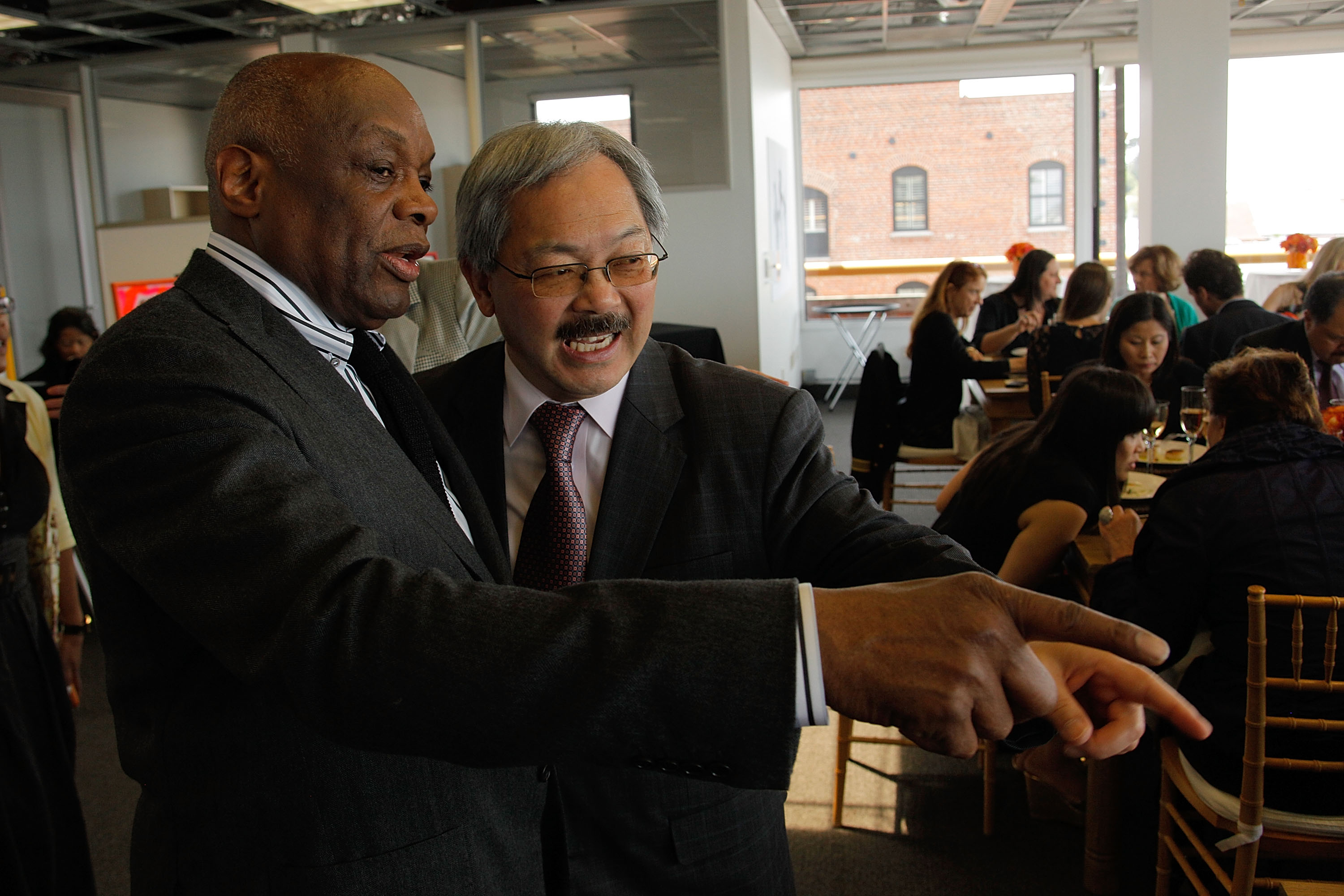
Willie Brown (left) and Ed Lee at The Cannery on May 2, 2012, in San Francisco, California. (Randy Brooke/WireImage)
The tangled tale involves a Chinese spy network and several of Harris’s close friends and allies, including her former paramour and mentor Willie Brown and a George Soros-backed prosecutor. It all started in 2010, when then-Mayor Gavin Newsom was elected California’s lieutenant governor.
Lee was appointed interim mayor by the city’s board of supervisors in January 2011. At the time, Lee promised that he would not run for the seat but soon changed his mind after an effort to draft him began later that year.
The “Run, Ed, Run” campaign was the work of a shadowy organization called Progress for All, which was established by a suspected Chinese spy named Bai Lan (known in San Francisco as Rose Pak). The Chinese-born power broker, who was investigated by the FBI in 2006 for her links to the Chinese Communist Party (CCP), was tied to former Mayor Willie Brown and had been close friends with Brown’s protégé, Lee, for decades. Several funders of Progress for All—which Brown heavily promoted—had previously scored millions of dollars in city contracts from Brown’s office.
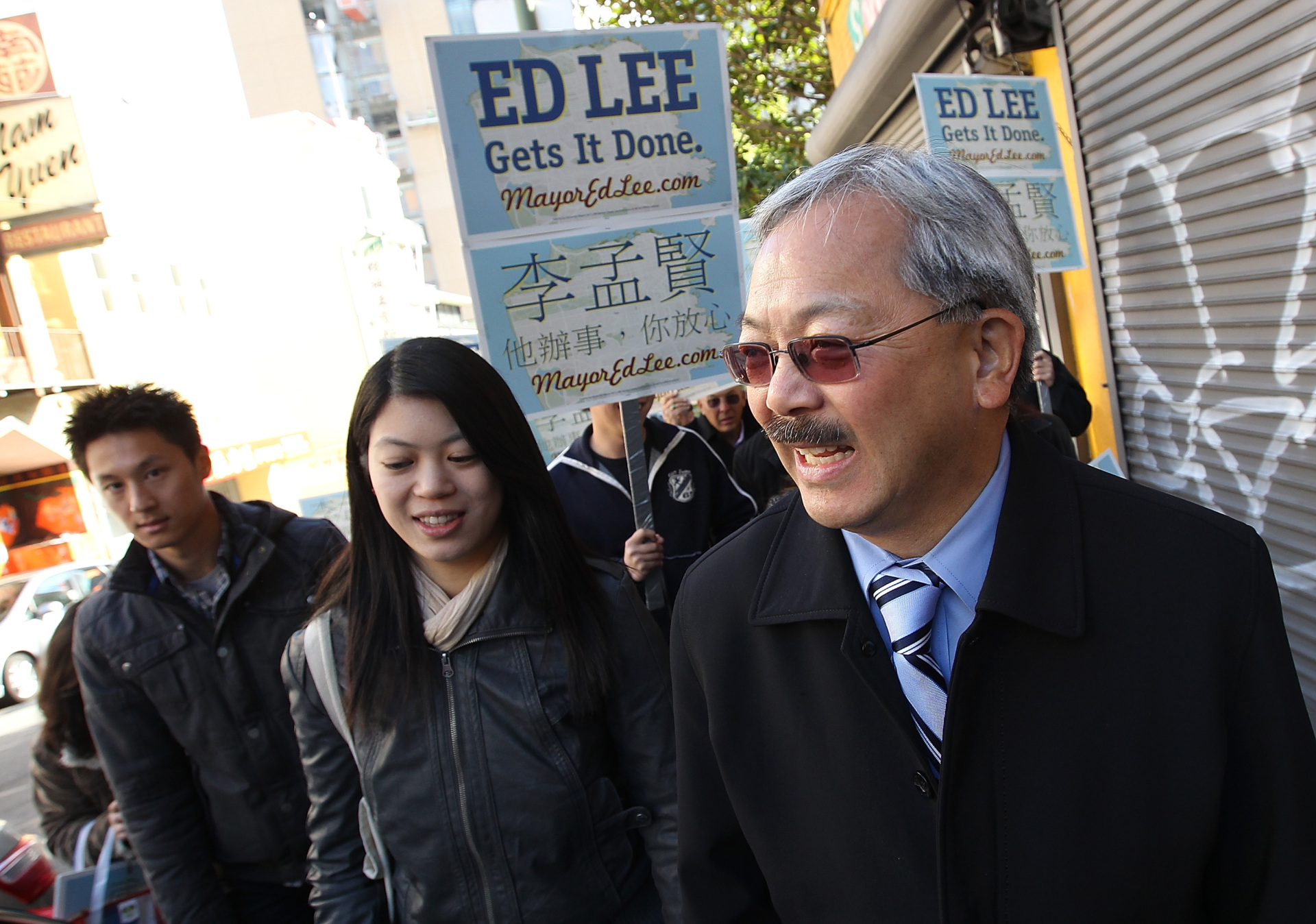
San Francisco mayor Ed Lee (right) walks through Chinatown on November 8, 2011, in San Francisco, California. Candidates for San Francisco mayor are making one last push to encourage people to vote as San Franciscans head to the polls to vote for a new mayor, district attorney, and sheriff. (Justin Sullivan/Getty Images)
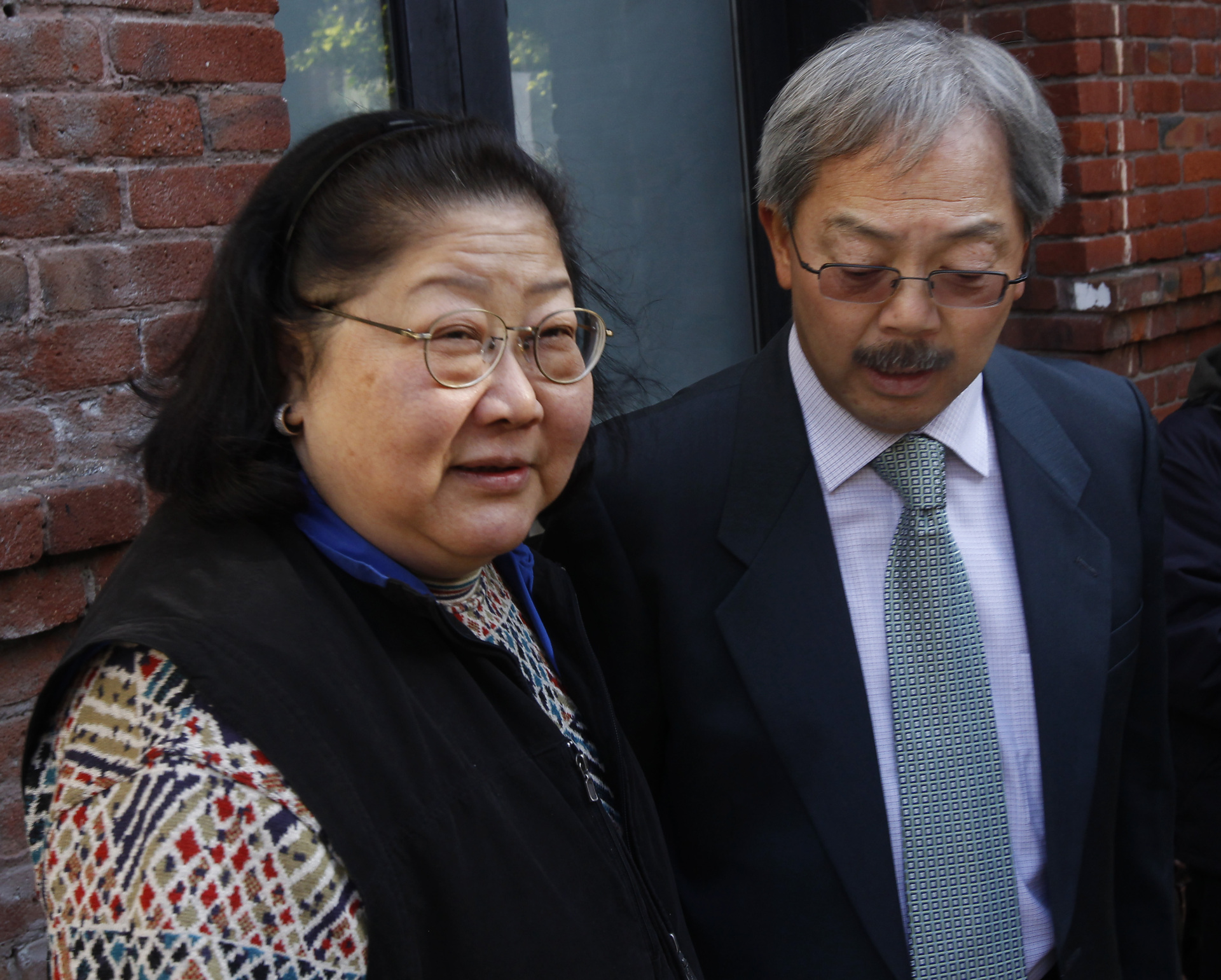
Rose Pak (left) meets with Mayor Ed Lee in San Francisco on January 15, 2011. (Paul Chinn/San Francisco Chronicle via Getty Images)
Because Lee had promised not to run for mayor, Pak’s organization was able to skirt campaign finance laws that limit individual mayoral contributions to $500. With Brown’s backing, more than $40,000 flowed into the pro-Lee operation.
In July 2011, Lee’s opponents alleged that Progress for All was committing gross campaign violations and demanded an investigation. As pressure mounted on prosecutors to act, San Francisco’s incestuous politics were laid bare.
The district attorney tasked with overseeing the case was the now-infamous George Gascón, San Francisco’s former police chief who had recently been appointed by Newsom in one of his final acts as San Francisco’s mayor. Gascon would later become known for his Soros connections, but he had risen to power thanks partly to his close personal relationships with Brown and Pak, who advised him to accept the prosecutor position that had been vacated by none other than Kamala Harris, the state’s newly elected attorney general.
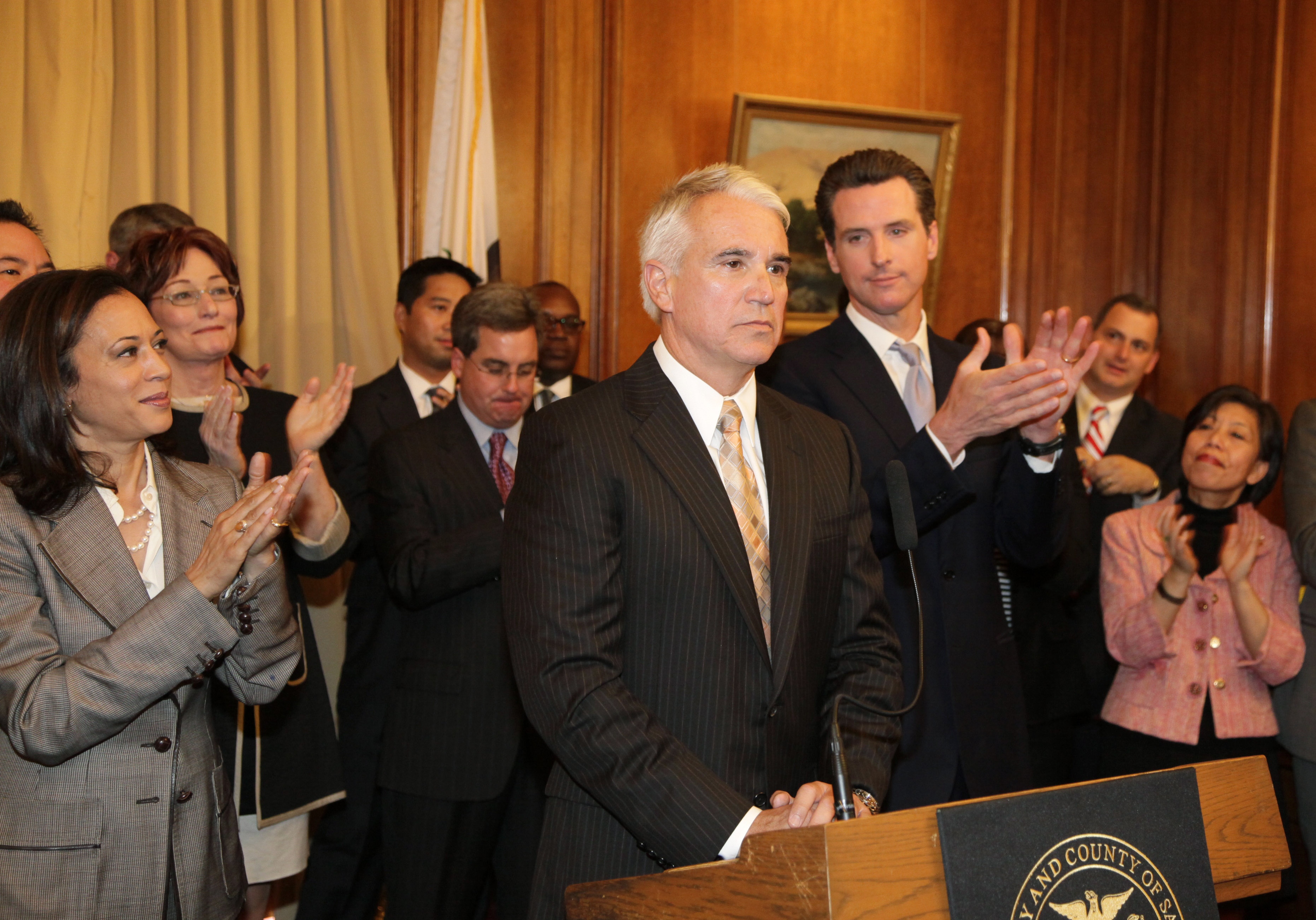
San Francisco’s new police chief George Gascon, at podium, is applauded after being introduced by Mayor Gavin Newsom, right, during a news conference at City Hall in San Francisco, on June 17, 2009. At his left is San Francisco District Attorney Kamala Harris. (AP Photo/Eric Risberg)
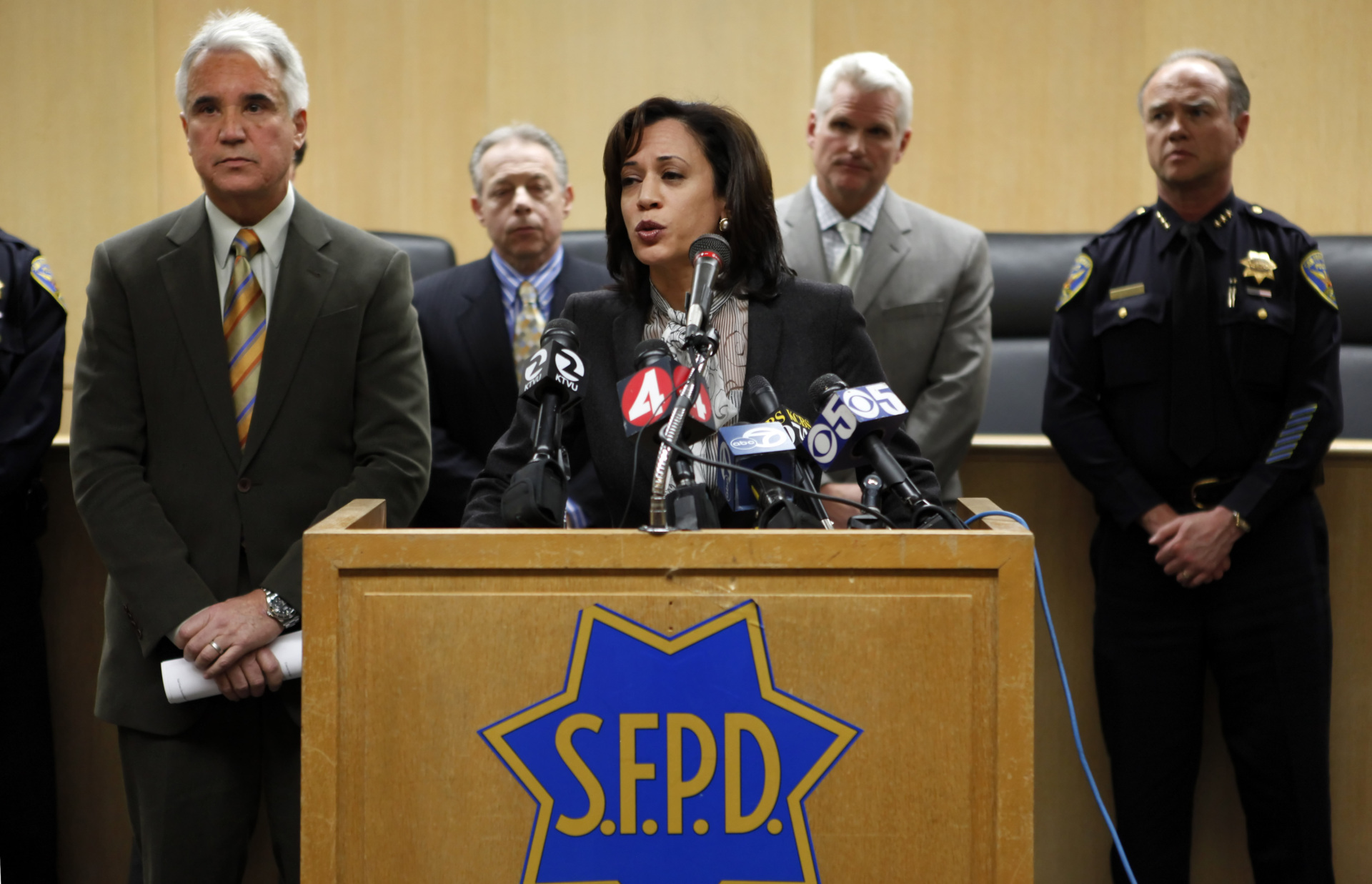
San Francisco District Attorney Kamala Harris addresses the press on March 9, 2010. On her left is Police Chief George Gascon. (Carlos Avila Gonzalez/The San Francisco Chronicle via Getty Images)
Lee’s opponents slammed Gascón for the glaring conflicts that could compromise an investigation into his political friends. Gascón referred the Lee case to Harris’s office, citing his own possible conflicts of interest. Now it was Harris’s job to investigate Progress for All, a group that was closely associated with her former lover, Willie Brown. Instead, Harris kicked the case back to Gascón, declaring there was no conflict preventing him from handling it. Gascón promptly closed the investigation.
Harris’s conflicts in the matter may have been even worse than Gascón’s. From 2009 to 2011, Kamala Harris received more than $33,000 in campaign donations from Pak’s Progress for All affiliates. Among those who donated was a San Francisco real estate developer whose company was found to have funneled $12,000 into Pak’s personal checking account years prior. Another Harris donor was Victor Makras, a close friend of Willie Brown’s and a major donor to Progress for All.
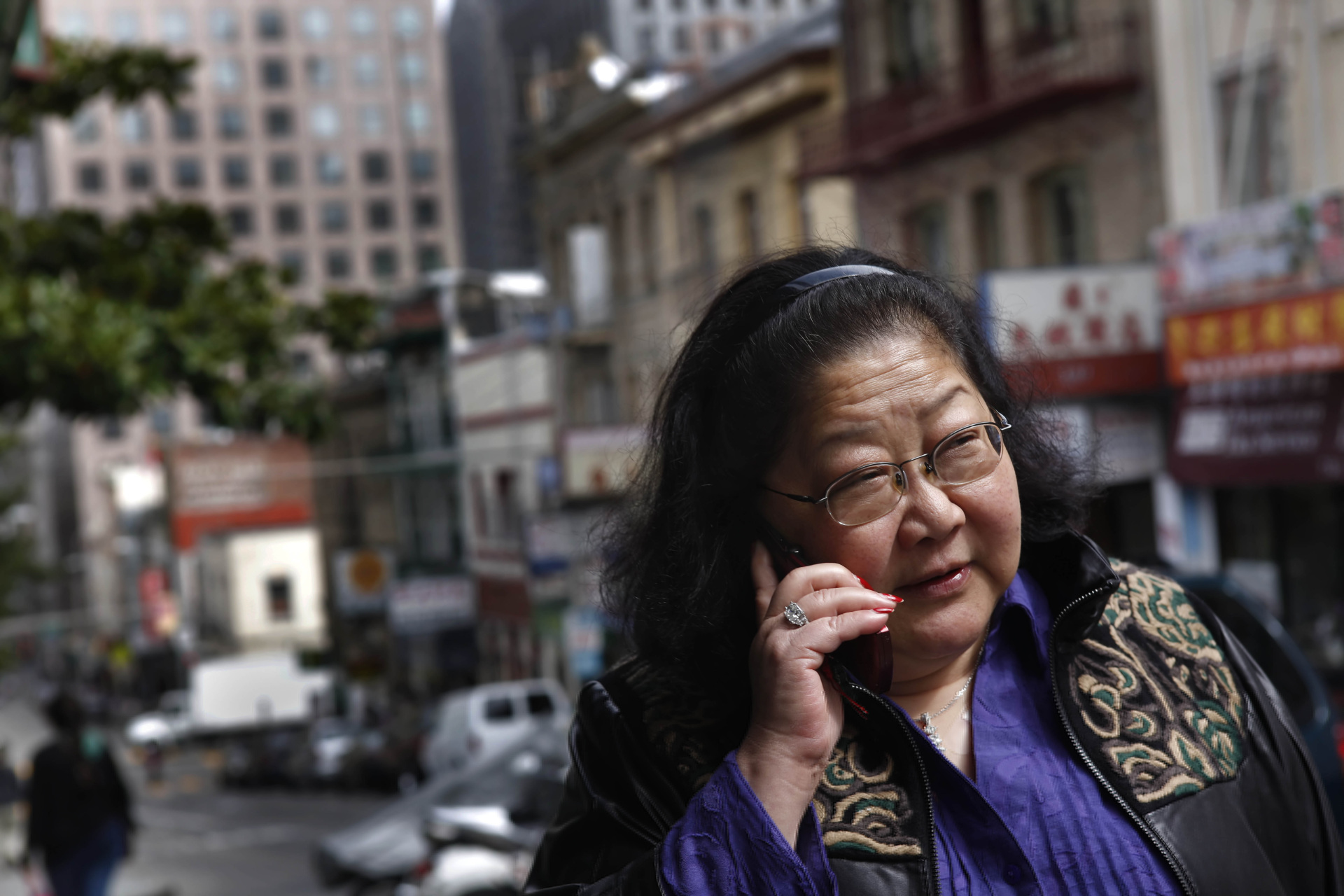
Rose Pak talks on her cell phone as she walks up Clay Street in Chinatown in San Francisco, California, on September 17, 2010. (Lea Suzuki/San Francisco Chronicle via Getty Images)
Two months after Harris and Gascón killed the inquiry into campaign finance violations, a video surfaced showing pro-Lee operatives handling absentee ballots for voters in Chinatown. The operatives were apparently instructing elderly citizens to vote for Lee and even collecting absentee ballots—both are serious potential crimes.
When confronted by the press, the ballot harvesters became angry and aggressive, demanding to see a reporter’s press credentials. When approached by a photojournalist, the workers began stuffing ballots back into envelopes and hiding other evidence of voter manipulation. It was later revealed that the operatives were directed by a close ally of Pak, who went on to become a consultant for Lee.
So, what did Attorney General Harris do about all this alleged corruption involving her friends and donors? Nothing.
Harris’s inaction may appear to be a clear-cut case of “just politics” in a town built on turning a blind eye. Yet, effectively squashing the Progress for All investigation had devastating consequences, not only for San Francisco but the entire country.
Had Harris investigated the Lee electioneering schemes, she might have uncovered the truth about Rose Pak’s operation in the Bay Area. By 2016, as Harris was gearing up for a U.S. Senate run, Rose Pak was fully exposed as the executive director of a CCP intelligence group called the China Overseas Exchange Association (COEA).
In 2023, six members of Congress wrote a letter to the FBI that described COEA as a front organization for China’s United Front Work Department (UFWD). According to the letter, the UFWD is a Chinese intelligence agency whose central mission is to “liaison with foreign political parties, influence operations, and collect intelligence.” That front group had apparently exploited Pak’s high-powered political connections in the Bay Area as part of China’s efforts to spy on and influence U.S. politicians.
When Ed Lee emerged as the victor of the 2011 mayoral race, Pak arranged a “gathering party” at the residence of a communist Chinese diplomat. Some of Harris’s friends and allies attended the party hosted by Chinese Consul General Gao Zhansheng. The Chinese diplomat was “delighted to witness closer exchanges and cooperation between China and San Francisco since the inauguration of Mayor Ed Lee.”
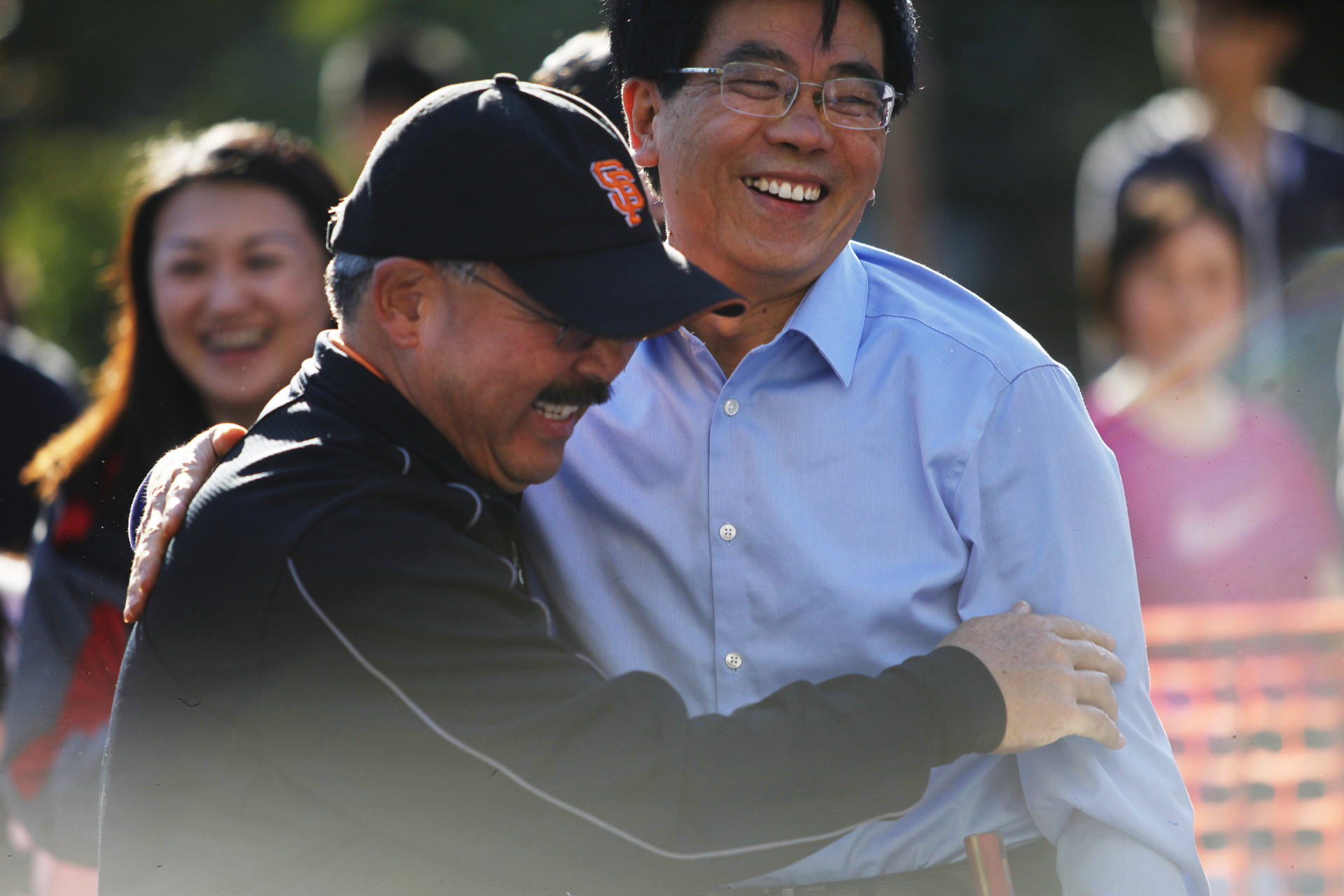
Mayor Ed Lee (left) and Chinese Consul General Gao Zhansheng embrace after playing a Ping Pong match against each other in Chinatown, San Francisco, California, on August 26, 2012. (Sonja Och/San Francisco Chronicle via Getty Images)
Indeed, China had good reasons to celebrate Lee’s victory. Just a few months after meeting with the Chinese consul, the newly elected mayor traveled to Beijing alongside Rose Pak and Willie Brown for the signing of a $1.7 billion deal with the Chinese government. The agreement allowed a Chinese state-owned construction firm to help redevelop a former U.S. Navy shipyard in San Francisco that was once home to the U.S.’s largest nuclear testing site.
Harris’s failure to investigate the allegations against Rose Pak and Progress for All stood in contrast to her pursuit of other similar cases during her time as attorney general.
Less than one year after the Lee inquiry was dropped, Harris’s office launched a full investigation into campaign finance violations by a conservative non-profit. Harris spared no expense and even begged the California Supreme Court to speed up efforts to compel the organization to provide internal documents to her office before the November election.
When reports of voter intimidation by a Republican county sheriff surfaced in 2016, Harris’s office sprang into action, sending representatives from her office to investigate and monitor the situation at polling stations throughout the county.
In both cases, Harris’s suspects happened to be rivals of her political allies.
Price Sukhia is an investigative journalist and Senior Research Fellow at Peter Schweizer’s Government Accountability Institute.
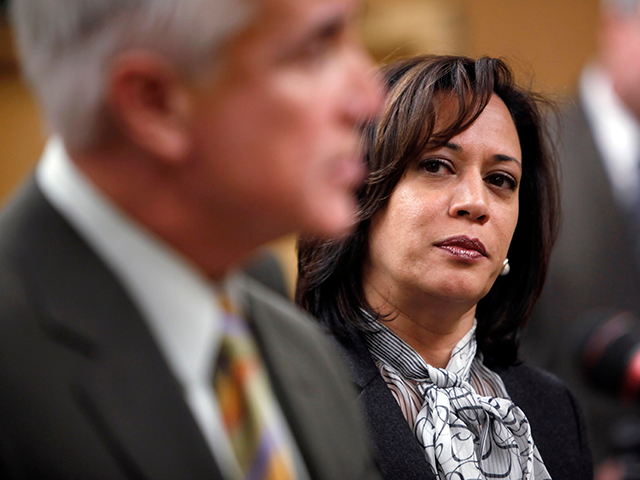
COMMENTS
Please let us know if you're having issues with commenting.